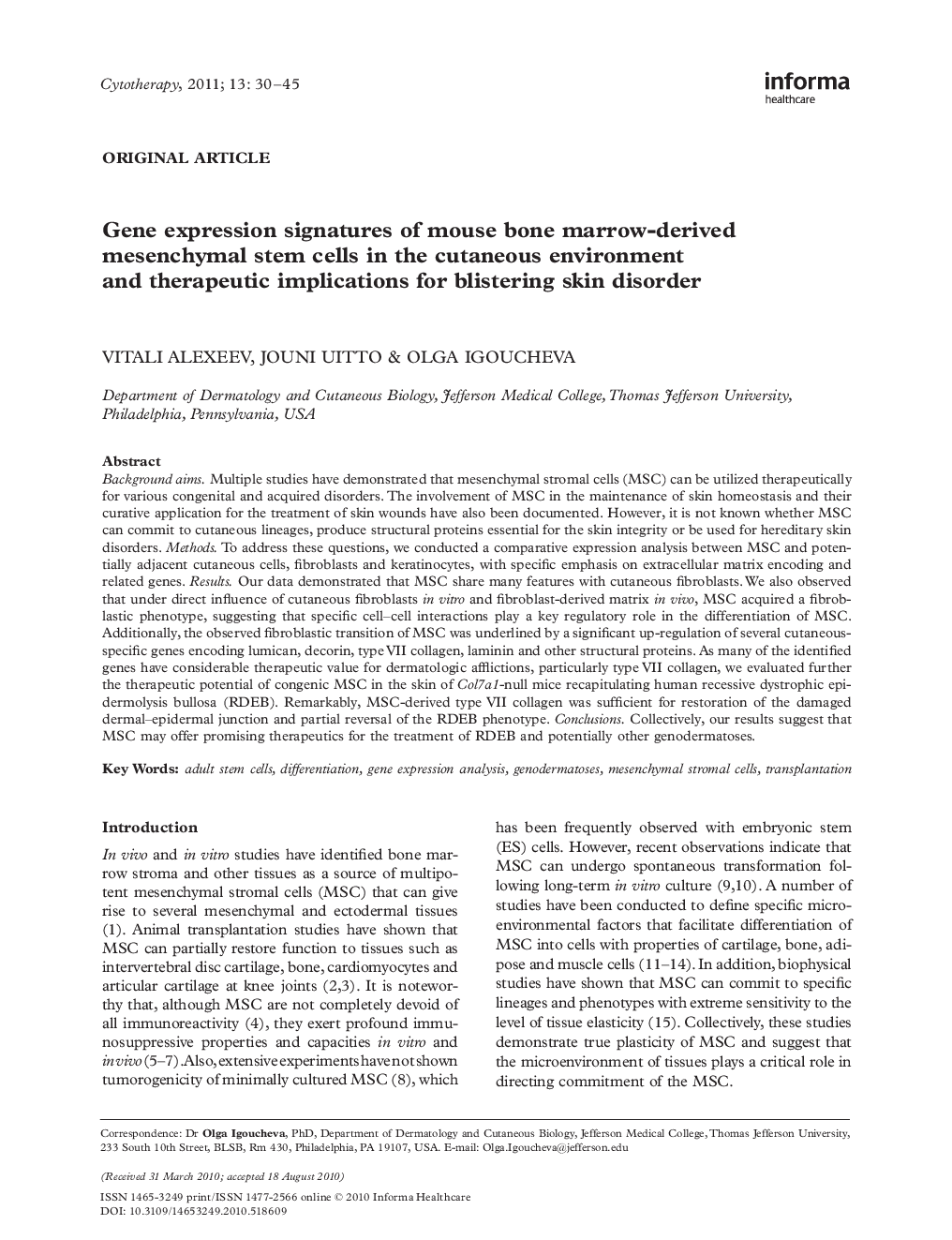| Article ID | Journal | Published Year | Pages | File Type |
|---|---|---|---|---|
| 2171886 | Cytotherapy | 2011 | 16 Pages |
Background aimsMultiple studies have demonstrated that mesenchymal stromal cells (MSC) can be utilized therapeutically for various congenital and acquired disorders. The involvement of MSC in the maintenance of skin homeostasis and their curative application for the treatment of skin wounds have also been documented. However, it is not known whether MSC can commit to cutaneous lineages, produce structural proteins essential for the skin integrity or be used for hereditary skin disordersMethodsTo address these questions, we conducted a comparative expression analysis between MSC and potentially adjacent cutaneous cells, fibroblasts and keratinocytes, with specific emphasis on extracellular matrix encoding and related genesResultsOur data demonstrated that MSC share many features with cutaneous fibroblasts. We also observed that under direct influence of cutaneous fibroblasts in vitro and fibroblast-derived matrix in vivo, MSC acquired a fibroblastic phenotype, suggesting that specific cell–cell interactions play a key regulatory role in the differentiation of MSC. Additionally, the observed fibroblastic transition of MSC was underlined by a significant up-regulation of several cutaneous-specific genes encoding lumican, decorin, type VII collagen, laminin and other structural proteins. As many of the identified genes have considerable therapeutic value for dermatologic afflictions, particularly type VII collagen, we evaluated further the therapeutic potential of congenic MSC in the skin of Col7a1-null mice recapitulating human recessive dystrophic epidermolysis bullosa (RDEB). Remarkably, MSC-derived type VII collagen was sufficient for restoration of the damaged dermal–epidermal junction and partial reversal of the RDEB phenotypeConclusionsCollectively, our results suggest that MSC may offer promising therapeutics for the treatment of RDEB and potentially other genodermatoses.
